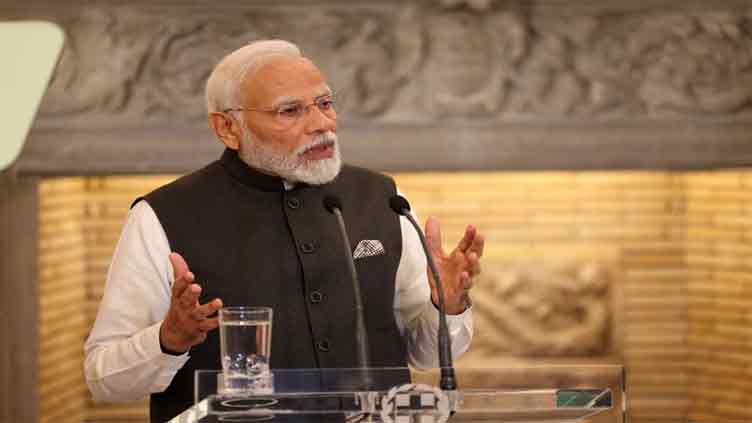One nation, one election: Modi pushes simultaneous federal, state polls in India

World
Opposition parties are against the idea, won’t support it in parliament
NEW DELHI (Reuters) – India set up a panel on Friday to identify ways to hold state and national elections at the same time, a contentious plan that aims to reduce the time politicians spend on campaigning and get them to focus more on doing their jobs.
Federal Parliamentary Affairs Minister Pralhad Joshi said a committee comprising constitutional experts had been set up to hold "mature discussions" around the idea of "one nation, one election".
The panel will be headed by former President Ramnath Kovind.
"India is called the mother of democracy ... and the discussion around (one nation, one election) is part of evolution," Joshi said, adding that the plan would be discussed in parliament.
Prime Minister Narendra Modi's government has called a surprise, special five-day session of parliament from Sept 18 to 22 but has not disclosed the agenda.
Media have reported that the "one nation, one election" move could be introduced this session but Joshi, when asked about it, said the agenda would be made known later.
Modi and his ruling Bharatiya Janata Party (BJP) has for long pushed the idea of combining state and federal elections as it would also help cut the cost of conducting polls in the world's most populous country.
But the move is complex as it would require curtailing or extending the terms of state legislatures that have been elected at different times for a five-year term.
A "one nation, one election" law will have to be passed by parliament and also ratified by states, about half of which are ruled by rivals of the BJP. Many have been opposed to the idea as they say it violates India's federal politics.
Leaders of opposition parties said on Friday they were against the idea and would not support it in parliament. Regional parties said holding elections simultaneously would hurt their prospects because they would not be able to highlight local issues.

